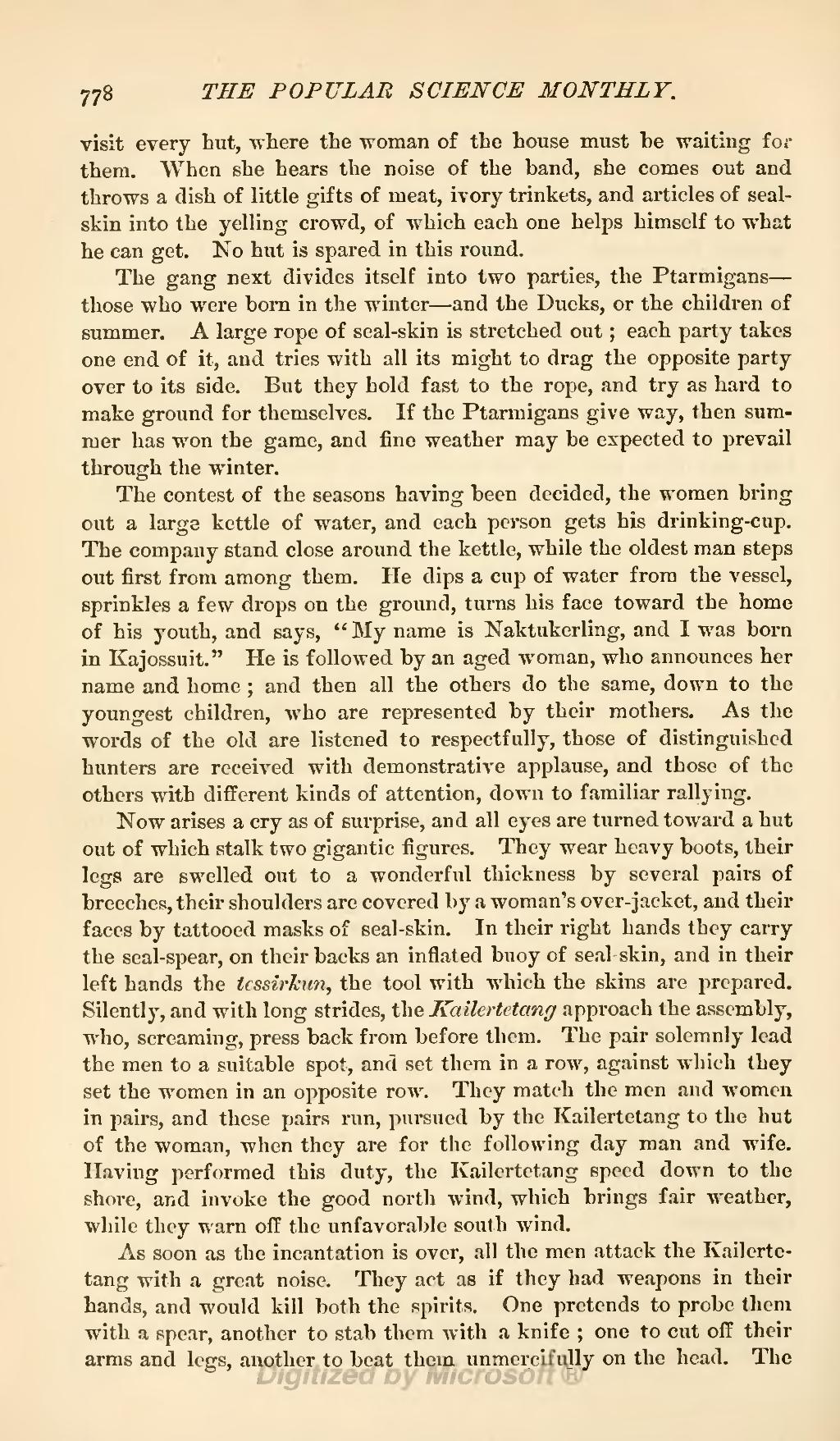visit every hut, where the woman of the house must be waiting for them. When she hears the noise of the band, she comes out and throws a dish of little gifts of meat, ivory trinkets, and articles of sealskin into the yelling crowd, of which each one helps himself to what he can get. No hut is spared in this round.
The gang next divides itself into two parties, the Ptarmigans—those who were born in the winter—and the Ducks, or the children of summer. A large rope of seal-skin is stretched out; each party takes one end of it, and tries with all its might to drag the opposite party over to its side. But they hold fast to the rope, and try as hard to make ground for themselves. If the Ptarmigans give way, then summer has won the game, and fine weather may be expected to prevail through the winter.
The contest of the seasons having been decided, the women bring out a large kettle of water, and each person gets his drinking-cup. The company stand close around the kettle, while the oldest man steps out first from among them. He dips a cup of water from the vessel, sprinkles a few drops on the ground, turns his face toward the home of his youth, and says, "My name is Naktukerling, and I was born in Kajossuit." He is followed by an aged woman, who announces her name and home; and then all the others do the same, down to the youngest children, who are represented by their mothers. As the words of the old are listened to respectfully, those of distinguished hunters are received with demonstrative applause, and those of the others with different kinds of attention, down to familiar rallying.
Now arises a cry as of surprise, and all eyes are turned toward a hut out of which stalk two gigantic figures. They wear heavy boots, their legs are swelled out to a wonderful thickness by several pairs of breeches, their shoulders are covered by a woman's over-jacket, and their faces by tattooed masks of seal-skin. In their right hands they carry the seal-spear, on their backs an inflated buoy of seal-skin, and in their left hands the tessirkun, the tool with which the skins are prepared. Silently, and with long strides, the Kailertetang approach the assembly, who, screaming, press back from before them. The pair solemnly lead the men to a suitable spot, and set them in a row, against which they set the women in an opposite row. They match the men and women in pairs, and these pairs run, pursued by the Kailertetang to the hut of the woman, when they are for the following day man and wife. Having performed this duty, the Kailertetang speed down to the shore, and invoke the good north wind, which brings fair weather, while they warn off the unfavorable south wind.
As soon as the incantation is over, all the men attack the Kailertetang with a great noise. They act as if they had weapons in their hands, and would kill both the spirits. One pretends to probe them with a spear, another to stab them with a knife; one to cut off their arms and legs, another to beat them unmercifully on the head. The

